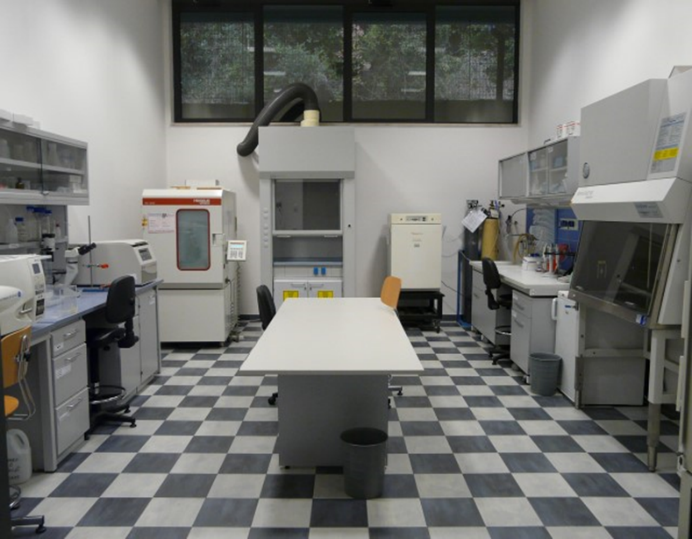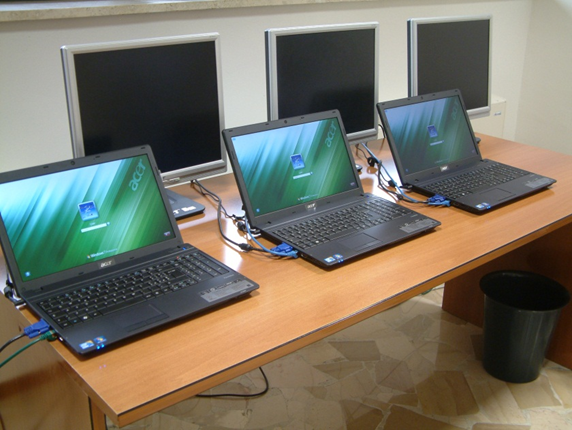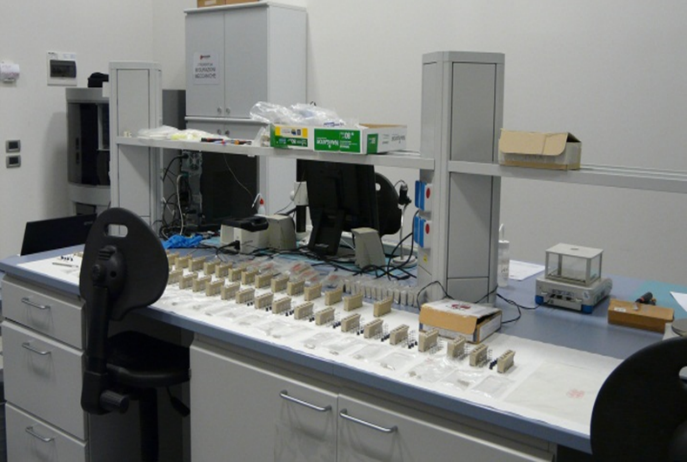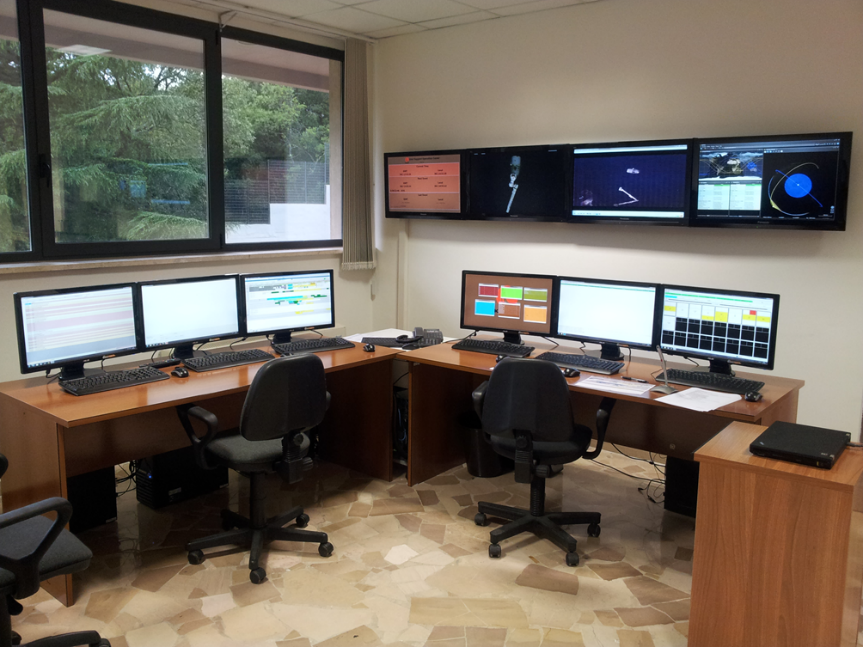ICARO: International space Centre for Advanced Research and Operations
Since the beginning of its activities within the space industry, Kayser Italia has always been involved in operations related to the scientific facilities used on board of space shuttles like the Russian capsules (BION, FOTON), Space Shuttle, and the International Space Station (ISS). The data collected in orbit, from the investigations directed by researchers, is interpreted, processed and distributed both for the coordination of the facility and the support of scientific researches during the execution of the experiment itself.
In 2007, Kayser Italia has designed, implemented and started a centre called ICARO (International space Centre for Advanced Research and Operations) to support the payload ELITE-S2 on board of the International Space Station (ISS). The centre is located at the Kayser Italia’s headquarter in Livorno and it has become fundamental for the Italian and European scientific communities. ICARO offers an integrated set of services aiming to facilitate the scientific development of experiments in space by managing pre-flight and in-flight procedures, providing researchers in space with technical advices to access and process scientific data and to ensure a rapid scientific return by allowing voice, video and data communications.
ICARO is composed by two main structures: Payload Operation Control Center (POCC) and Experiment Support Center (ESC). The two centres operate simultaneously guaranteeing the control of all the activities on an experiment during its life cycle.
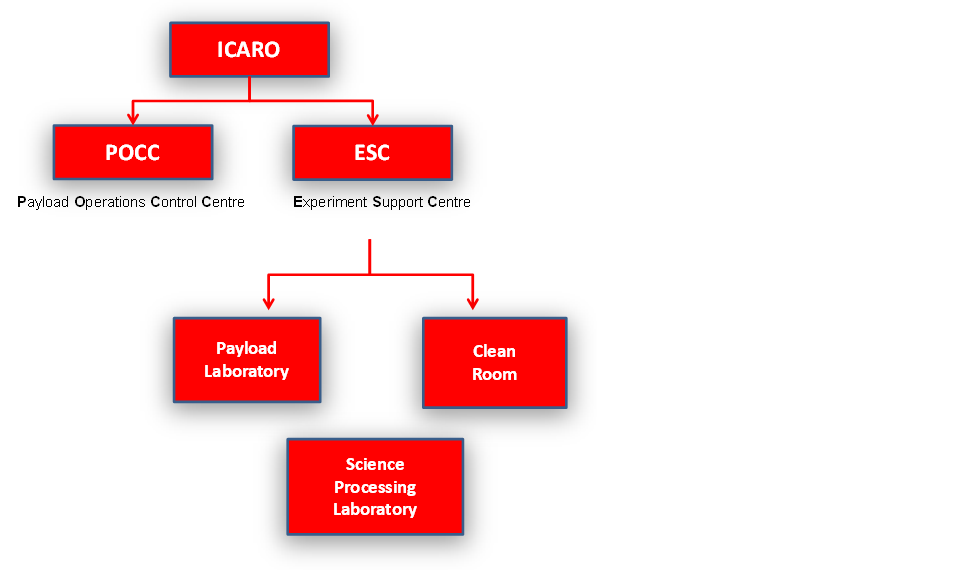
ESC – Experiment Support Centre
The Experiment Support Center (ESC) is a part of ICARO ideated for supporting specific scientific and technological activities necessary for space research with an adequate infrastructure, know-how and experienced personnel. The final aim is to exploit the experimentation opportunities both in microgravity and on earth.
The ESC assures and provides the scientific community with the required support in space during all the phases of development, verification, in-flight and post-flight activities of the current experiment.
Indeed, it was created to give support to the investigations by clarifying definitions of scientific protocols, providing flight hardware training, sustaining the test phase and making available a wide range of already developed flight hardware as reference devices for in-flight investigations. It also offers support to the mission through EST (Experiment Sequence Test), pre-flight hardware integration, download and analysis of science data after the re-entry, housekeeping data download and analysis and, finally, hardware de-integration and samples retrieval.
The Center is divided into 3 principal areas: the payload laboratory, the science processing laboratory and the clean room.
The Payload Laboratory is composed by:
- 6 workstations for the preparation of the payload
- Inspection video system
- Availability of fight and qualification hardware
- Vacuum vessels
- Microscopes and video cameras
- 2 units for ultrasound cleaning
- High precision scales
- 3D printer
The Clean Room :
- room of 100 m2
- ISO8 category
- 7 workstations
- Dry cabinet
The Science Processing Laboratory includes:
- Laminar flow bench
- Fume hood
- Climatic chamber of 300 litres
- Freezer (till -80 degrees)
- Microscopes
- Centrifuge
- Autoclave for sterilisation
- CO2 incubator
- Standard equipment for bio-chemistry labs.
POCC – Payload Operations Control Center
The Payload Operations Control Center has the role of supporting scientific remote operations of the payload in orbit by coordinating audio, video and data communications with the ISS and NASA control centres.
The POCC permits to access to the planning of the operations on ISS (OPTIMIS, ex Onboard Short Term Plan viewer), access to the operative procedures active on board using the International Procedure Viewer (iPV), real time monitoring of the payload, use of means of tele-science such as telemetry and telecommand. Engineering and scientific telemetry data are stored and retrieved for post-mission data analysis. The POCC gives remote support to the UHB (User Home Base) and, finally, it hosts a satellite tracking system.
The center includes:
- 6 workstations
- 2 redundant servers
- 1 station for the management of video channels
- 4 monitors
- 3 User Home Base (UHB) transportable workstations for audio/video connections
Lastly, it has a redundant internet connection given from 2 independent providers, connection to the Italian Space Agency (ASI) network ASINET and to the Italian university network GARR.
The curriculum of the center and its history at:
Kayser Italia Operations Support Center: an history of science support
